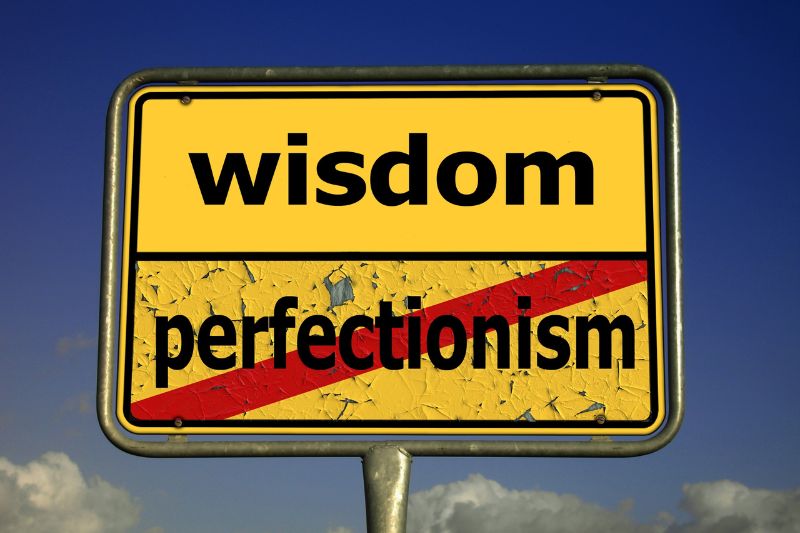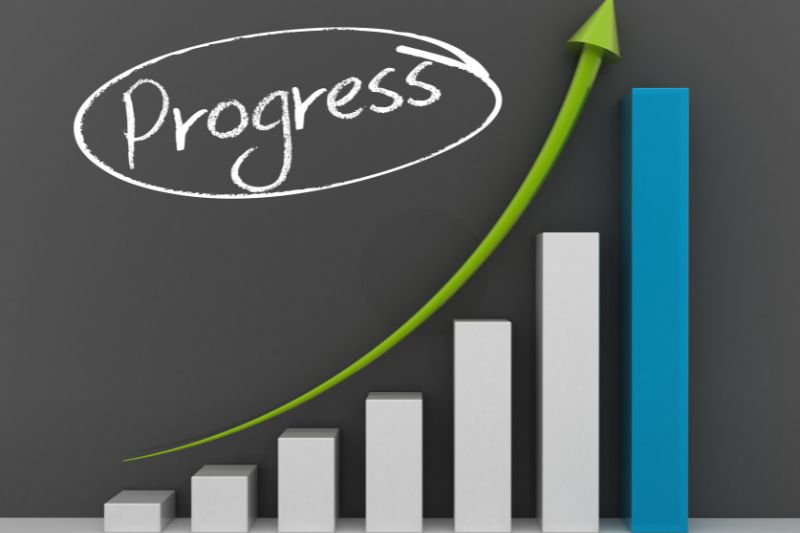Ask Dr. Saline: How do I avoid the perfectionism trap?
 Dear Dr. Saline, I recently started my first full time job after graduating from college and feel like I’m struggling with the adjustment. I’ve had the usual ups and downs in school which come with ADHD. But now that I’m working, my tendency toward perfectionism has become overwhelming. Worst of all, I don’t think my work is any better as a result of all the extra effort I put into it. Do you have any advice on how I can get unstuck from the perfectionism trap? Thank you, Kathy
Dear Dr. Saline, I recently started my first full time job after graduating from college and feel like I’m struggling with the adjustment. I’ve had the usual ups and downs in school which come with ADHD. But now that I’m working, my tendency toward perfectionism has become overwhelming. Worst of all, I don’t think my work is any better as a result of all the extra effort I put into it. Do you have any advice on how I can get unstuck from the perfectionism trap? Thank you, Kathy
From Dr. Saline:
Dear Kathy,
First of all, congratulations on your first full-time job! It’s an important milestone, and it’s natural to take time to figure out new routines and skills as you make this transition. Wanting things to go well reflects your desire to do well. But when this desire morphs into a need for everything to be just right, anyone can tip over into complicated perfectionism.
Perfectionism is a common issue for kids and adults with ADHD who simply want to avoid making another mistake (again). While banishing perfectionism forever may be your goal, it’s not that realistic. Instead, you can learn to turn down its noise and create more effective coping strategies for motivation and quality.
Perfectionism and ADHD

For folks with ADHD, perfectionism can be a way to overcompensate for feeling not good enough or being “less than.” It’s also a way to hyperfocus on a task, project, or idea as you push yourself to get “just right.” The trouble with perfectionism is that it can be a double-edged sword. When used productively, it can be a driving force in helping you do your best work. But it can also create a great deal of troubling anxiety that actually hinders progress. It’s all too easy to get stuck on one detail, go down a rabbit hole, and then lose sight of the bigger picture.
4 Tips to Avoiding the Perfectionism Trap (and Getting to the Finish Line)
Breaking out of the “all or nothing” constraints of perfectionism is possible once you apply a few helpful strategies. No fancy tools or equipment are needed. It all comes down to relying on a growth mindset and accepting that being perfect is a myth.
Catch Yourself
 The first step is to check in with yourself and see where you are. Self-reflection can help you catch yourself sliding into unwanted behaviors or thinking. Pause and see whether you’re feeling anxious, nervous, distracted. Ask yourself the following questions throughout the day to make sure you’re staying on track:
The first step is to check in with yourself and see where you are. Self-reflection can help you catch yourself sliding into unwanted behaviors or thinking. Pause and see whether you’re feeling anxious, nervous, distracted. Ask yourself the following questions throughout the day to make sure you’re staying on track:
- Am I making progress on this task?
- Is this detail important to the project, or is it just a “nice to have”?
- How will this outcome help me meet my goal?
- Is this good enough for now?
You may also find it helpful to create a daily task checklist with items organized by deadlines and then enjoyment, as sometimes these don’t go together. If your list contains more than five items, it’s too big. Take the top three items and put them on a new list. This will reduce visual overwhelm and help you set goals you can actually accomplish.
Set Reasonable Goals
Y ou know yourself well enough by now that you know what is doable and what isn’t. People with ADHD often under- or overestimate how long a task will take. Are you able to honestly assess the length of time and effort for items on your list? Start each day by setting one to three achievable goals by keeping them small and doable. If you finish them, great! You can return to your bigger list. If not, then the goals were too ambitious. Break them down into simpler ones.
ou know yourself well enough by now that you know what is doable and what isn’t. People with ADHD often under- or overestimate how long a task will take. Are you able to honestly assess the length of time and effort for items on your list? Start each day by setting one to three achievable goals by keeping them small and doable. If you finish them, great! You can return to your bigger list. If not, then the goals were too ambitious. Break them down into simpler ones.
Folks with ADHD also carry the extra burden of negative self-talk. They have a tendency to think they’re not good enough or are less than. Even worse, they can fall into what I call the cycle of “compare and despair” – looking at what other people are doing that you aren’t. Everyone is different, so measuring yourself by someone else’s standards will not help you get to where you want to be. Perfectionism is an attempt to overcompensate for this nagging sense of not measuring up. You can choose to shift your focus to where you have come from on your own personal journey instead.
Perfectionism is less likely to creep in and break your momentum when you’re working towards goals you know you can accomplish. If a task feels too big, break it down into smaller components. Revisit the goals you’ve set for yourself to see what you can learn for next time. If you thought writing a three-page essay or report in four hours was doable, but it actually took you five hours, then use this information when setting future goals and plans for working.
Aim for Progress, Not Perfection
 Making any kind of progress is better than being stuck. Even if you end up heading in an unhelpful direction, it’s still better than doing nothing at all. This is how we grow and adapt. We learn from our stumbles. Nobody figured out how to ride a bicycle without a few falls and bruises. When you see you’re on a path that isn’t working, regroup, pivot, and head in another direction. It’s also helpful to identify someone you can ask for help when you catch yourself getting stuck. A friend or colleague can not only help gain much-needed perspective but can also flag when you’re falling into the perfectionism trap.
Making any kind of progress is better than being stuck. Even if you end up heading in an unhelpful direction, it’s still better than doing nothing at all. This is how we grow and adapt. We learn from our stumbles. Nobody figured out how to ride a bicycle without a few falls and bruises. When you see you’re on a path that isn’t working, regroup, pivot, and head in another direction. It’s also helpful to identify someone you can ask for help when you catch yourself getting stuck. A friend or colleague can not only help gain much-needed perspective but can also flag when you’re falling into the perfectionism trap.
Maintain a Growth Mindset
 A growth mindset is the best tool in your toolbox. More than just positive thinking, a growth mindset is about accepting yourself for who you are while opening your heart and your mind to learning and improving. It’s about understanding that we grow through trial and error, and that mistakes are part of that process. Errors don’t make you a failure, they reflect your natural humanity. Perfection is not the yardstick against which you measure yourself: Aim for steadiness, consistency and self-compassion instead. When you live with ADHD, it’s easy to rely on perfectionism to compensate for EF challenges and social insecurities. But this feeds a patter of being deficient and needing approval to make yourself “okay”. There is no such thing as perfection and the part of yourself that tells you it exists is also imperfect. A growth mindset along with self-acceptance will help you nurture essential resilience and lead you to share what is wonderful about you just like we all do, warts and all.
A growth mindset is the best tool in your toolbox. More than just positive thinking, a growth mindset is about accepting yourself for who you are while opening your heart and your mind to learning and improving. It’s about understanding that we grow through trial and error, and that mistakes are part of that process. Errors don’t make you a failure, they reflect your natural humanity. Perfection is not the yardstick against which you measure yourself: Aim for steadiness, consistency and self-compassion instead. When you live with ADHD, it’s easy to rely on perfectionism to compensate for EF challenges and social insecurities. But this feeds a patter of being deficient and needing approval to make yourself “okay”. There is no such thing as perfection and the part of yourself that tells you it exists is also imperfect. A growth mindset along with self-acceptance will help you nurture essential resilience and lead you to share what is wonderful about you just like we all do, warts and all.
